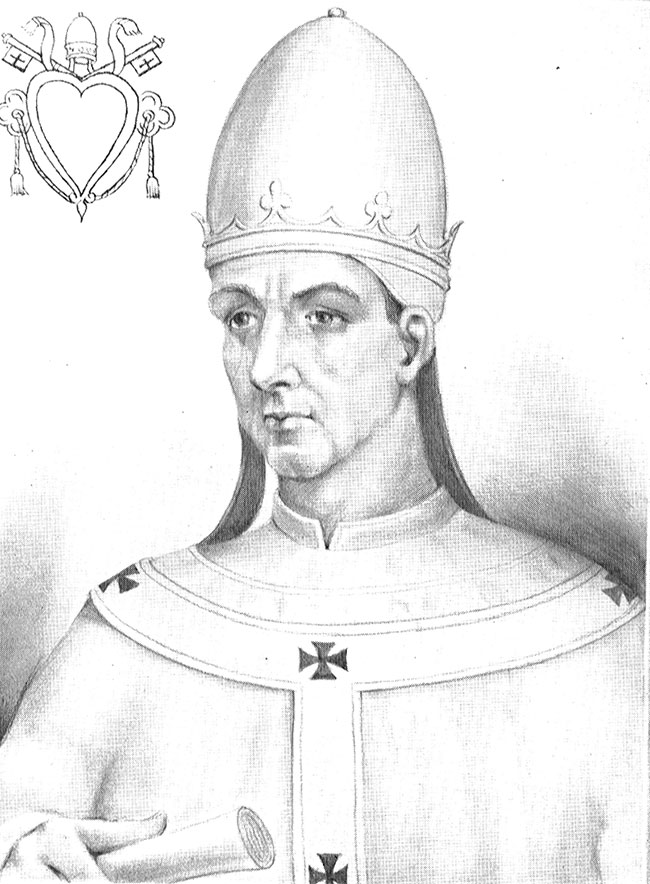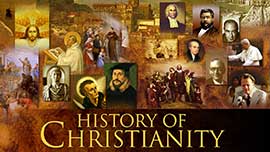WHICH SIDE OF THE CONTROVERSY WAS POPE VIGILIUS ON?

[Imaginary portrait of Vigilius. Chevalier Artaud de Montor. Lives and Times of the Popes. New York: Catholic Publication Society of America, 1911. public domain]
WHAT THE BIBLE TEACHES about Jesus is complex. Theologians can slip into error trying to explain the Incarnation. Some early Christians accused each other of heresy, misunderstanding each other’s writings. Bishops at the Council of Chalcedon gave two theologians a chance to explain themselves. Theodoret and Ibas seemed to say Christ has two persons. A council had condemned a bishop named Nestorius for implying that same error. Theodoret and Ibas answered so well that the bishops agreed they were sound.
This did not sit well with some Egyptian clergy. Several African bishops taught that Christ has only one nature. (Monophysitism or miaphysitism; Theologians who are orthodox say Christ has both a man’s nature and God’s nature.) These Africans refused to accept Chalcedon because it accepted Theodoret and Ibas.
Archbishop Ascidas of Caesarea was influential at the court of Emperor Justinian. To divert attention from his own errors, he urged Justinian to resolve the issue with the Africans. Ascidas and Empress Theodora assured Justinian that the monophysites would return to orthodoxy if he would condemn Theodoret, Ibas, and a third theologian, Theodore of Mopsuestia. The writings of these three were known as the Three Chapters.
Justinian fancied himself a theologian and was happy to dip his oar into the troubled waters. In 544, he issued a condemnation of the Three Chapters. Four eastern patriarchs endorsed this. Pope Vigilius and many western and African bishops rejected the emperor’s edict. Vigilius excommunicated Archbishop Ascidas, Justinian, and anyone who sided with them.
The emperor ordered Vigilius to come to Constantinople. There, on this day 11 April 548, the pope changed his mind and condemned the Three Chapters in his Judicatum (i.e.: judgment or opinion). Outraged, African bishops gathered in Carthage in 550 and excommunicated Vigilius. Romans also opposed the Judicatum. Vigilius now excommunicated people on the opposite side of his earlier excommunication. When the western church stayed angry at him, the pope tried to pacify them by withdrawing the Judicatum. To save face, he called for a general council to resolve the issue. Justinian agreed, but did not hold the council right away.
In the troubled years that followed, Justinian pressured the pope to endorse the imperial position. He even sent soldiers to drag him from a church altar where he had taken refuge. When the people hissed this action, the emperor changed tactics and sent a delegation with promises and pleas. The pope returned to his house, but found himself watched day and night. He fled through a broken wall and took sanctuary in a church at Chalcedon.
When the promised council finally was held in Constantinople in 553, Vigilius refused to attend. He wanted a different ratio of representatives than Justinian. And he was ill. In his place, he sent a Constitutum (i.e.: “determination”) condemning sixty statements of Theodore of Mopsuestia. He forbade the council to condemn Theodore (who had died at peace with the church) or to censure the writings of Ibas or Theodoret because Chalcedon had not done so. The council ignored Vigilius and condemned Theodore and the writings of the other two.
Six months later, Vigilius gave in and accepted the conclusions of the council. He said Christ had removed darkness from his mind. He condemned the Three Chapters and anathematized anyone who held their errors. In 554 he headed back to Rome, but died in Syracuse, suffering from kidney stones. Although his successor Pelagius I accepted the acts of the council, the West remained divided over the Three Chapters for decades. And the monophysites did not return to orthodoxy.
—Dan Graves
----- ----- -----
For more about early Christianity, watch History of Christianity at RedeemTV
History of Christianity can be purchased at Vision Video







